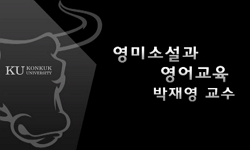The Japanese government planned to implement standardized tests such as TOEFL and IELTS, alongside the University Entrance Common Test, to measure English language abilities, including speaking, with the intention of developing global talents capable ...
http://chineseinput.net/에서 pinyin(병음)방식으로 중국어를 변환할 수 있습니다.
변환된 중국어를 복사하여 사용하시면 됩니다.
- 中文 을 입력하시려면 zhongwen을 입력하시고 space를누르시면됩니다.
- 北京 을 입력하시려면 beijing을 입력하시고 space를 누르시면 됩니다.

일본 대학입시제도 개편에 드러난 공정성·공평성에 대한 인식: 민간영어시험 활용 계획을 중심으로 = Failures in Japan’s University Admission Reform and Perceptions of Fairness: A Case Study on the Implementation of English-Speaking Tests in University Entrance Exams
한글로보기부가정보
다국어 초록 (Multilingual Abstract)
The Japanese government planned to implement standardized tests such as TOEFL and IELTS, alongside the University Entrance Common Test, to measure English language abilities, including speaking, with the intention of developing global talents capable of competing in the world. However, this plan failed due to the then Ministry of Education’s provocative remarks on socio-economic inequalities. This incident suggests that the failure of the plan resulted from issues of procedural and substantive fairness. Thus, this study intends to describe the unreasonable implementation of the plan and to examine the discussion on fairness in university admission within a governmental committee. As a result, this research suggests that Japanese society is approaching a critical moment when the issue of fairness becomes increasingly important, particularly with the diversification of university admissions and the widening gap across classes and regions.
동일학술지(권/호) 다른 논문
-
서문: 일대일로를 어떻게 평가할 것인가: 연원, 현상, 경쟁
- 서울대학교 아시아연구소
- 김백영
- 2024
- KCI등재
-
반둥에서 ‘일대일로(一帶一路)’까지: 냉전시기 중국의 아프리카 원조와 제3세계론
- 서울대학교 아시아연구소
- 백지운
- 2024
- KCI등재
-
중국의 대(對) 약소국외교의 역사적 맥락에서 본 ‘일대일로’: 신국제질서를 추구하는 중국의 이상주의와 현실주의의 교합
- 서울대학교 아시아연구소
- 서정경
- 2024
- KCI등재
-
메콩 지역 일대일로 이니셔티브의 사회적 수용성 고찰: 라오스와 캄보디아 초국경 인프라 구축 사례를 중심으로
- 서울대학교 아시아연구소
- 최기룡
- 2024
- KCI등재




 KCI
KCI DBpia
DBpia






